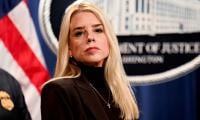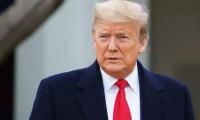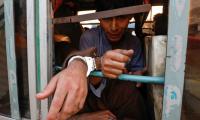President Dr Jaipal Chhabria. He said an attack at any place of worship was an attack on humanity. He believed that religious extremists had been given a free hand by the state.
Speaking of Pakistan’s first law minister Jugandarnath Mandal, who was a Hindu, Chhabria said the nation’s salvation laid in being taught correct history. “Our children should know that people from various religious backgrounds had an equal part in creating Pakistan.”
Kausar Ali and Mehreen, the father and daughter duo who survived the Mastung blast also stood in solidarity with the protesters. Ali claimed the state was powerful enough to deal with extremist elements with an iron hand. “But unfortunately the funds from America are far more important than our lives.”
Appreciating the protesters’ initiative, Shabbir Ali also joined the protesters after offering his prayers inside the imambargah. He was of the opinion that the country was paying the price of its foreign policy set decades ago. “A policy which was meant to backfire,” he said.
The organisers plan to stage similar protest-cum-vigilance outside churches, temples as well as other places of worship of minorities.
An aerial view of the commercial district of Pakistan's port city of Karachi. — AFP/FileZikr Volume IVThe VM Art...
Sindh High Court building in Karachi. — SHC website/FileThe Sindh High Court dismissed a petition filed by a man...
View of the site after a traffic accident due to overspeeding while recusing operation underway, at Gulistan-e-Johar...
This undated picture shows Sindh Rangers personnel patrolling in an area on a vehicle. — APP/FileThe Sindh Rangers...
An undated image of the building of the Board of Intermediate Education Karachi . — Facebook/BIEK/FileThe...
A representational image of a handcuffed man. — APP/FileThe Special Investigation Unit of Karachi Police has...







